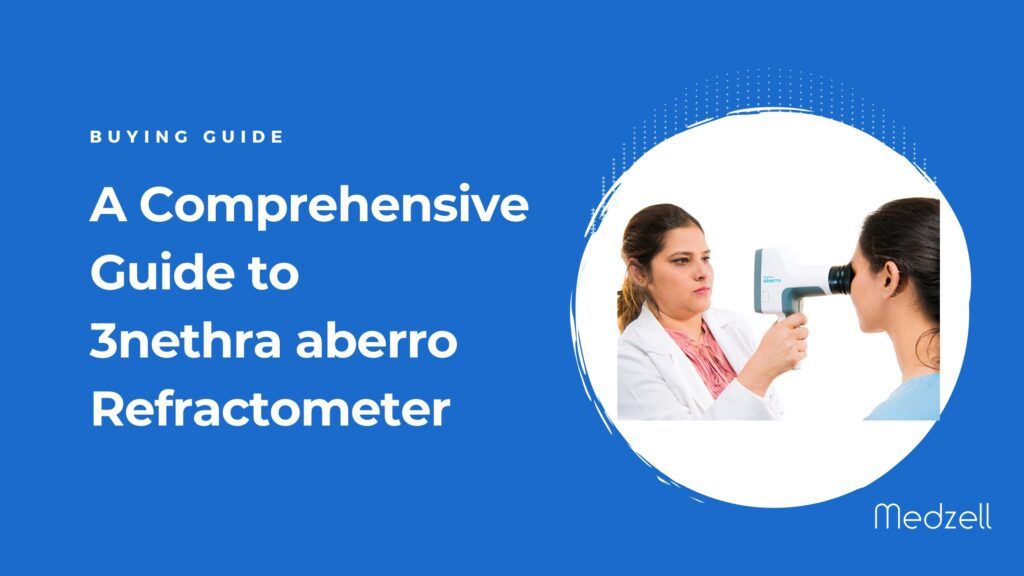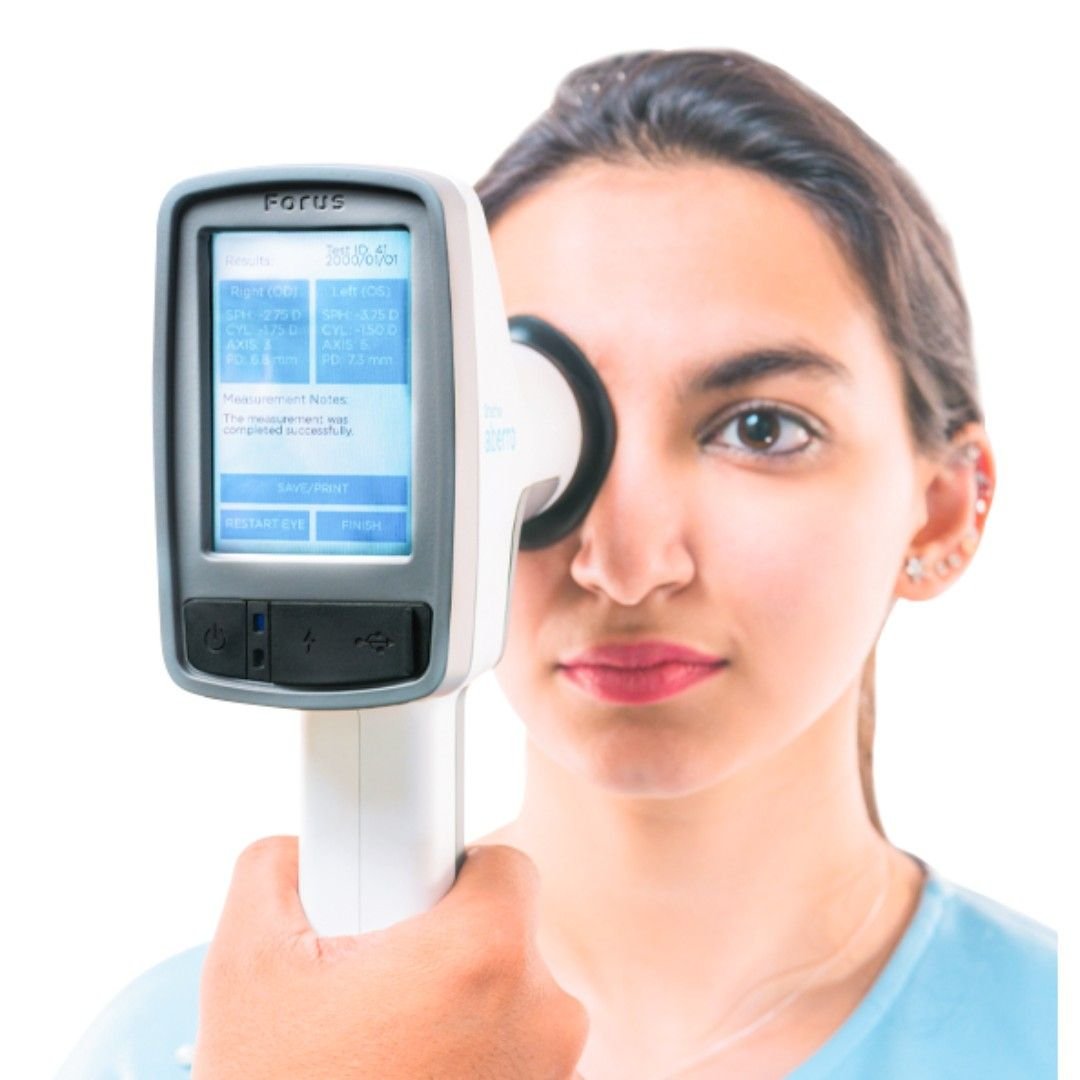In the realm of ophthalmology, accurate measurement of the eye’s refractive index is crucial for diagnosing and treating various vision impairments. Refractometers, sophisticated instruments designed to measure the refractive error of the eye, are indispensable tools in this field. This B2B guide delves into the nuances of refractometers, their essential features, and the myriad benefits they offer, helping you make an informed purchasing decision.
Understanding Refractometers
Refractometers are optical devices used to measure the extent to which light is bent, or refracted, as it passes through different media. In ophthalmology, these instruments are vital for assessing patients’ vision and determining prescriptions for corrective lenses.
- Basic Principle: Refractometers work by projecting light into the eye and measuring the angle at which the light exits. This angle indicates the refractive error.
- Types: There are manual and automatic refractometers. Manual versions require skilled operation, while automatic ones provide quick and precise readings with minimal user intervention.
- Application: Commonly used during eye exams to diagnose conditions like myopia, hyperopia, and astigmatism.
Essential Features of Refractometers
- High Resolution: Look for devices with high-resolution sensors to ensure precise measurements.
- Calibration: Automatic calibration features can enhance accuracy and reduce the need for manual adjustments.
- User Interface: Touchscreen interfaces and intuitive controls make refractometers easier to operate.
- Portability: Compact and lightweight models are beneficial for mobile clinics and small practice setups.
- Multiple Modes: Devices that offer various measurement modes (e.g., adult, pediatric) provide flexibility in different clinical settings.
- Integration: Ability to integrate with other diagnostic tools and electronic medical records (EMR) systems streamlines the workflow.
- Robust Build: Choose refractometers built with high-quality materials to withstand frequent use.
- Maintenance Requirements: Consider models with low maintenance needs to minimize downtime and operational costs.
Benefits of Refractometers
- Reliable Results: Precise measurements lead to accurate diagnoses, enabling better treatment plans.
- Early Detection: Helps in the early detection of refractive errors and other vision-related issues, improving patient outcomes.
- Quick and Non-invasive: Fast and painless measurements enhance patient comfort and satisfaction.
- Personalized Care: Accurate data allows for tailored treatment, improving the overall quality of care.
- Time-Saving: Automatic refractometers significantly reduce the time required for eye exams.
- Streamlined Workflow: Integration with EMR systems reduces paperwork and improves data management.
- Long-Term Investment: High-quality refractometers offer durability and reliability, making them a cost-effective choice in the long run.
- Reduced Errors: Accurate readings reduce the likelihood of prescription errors, minimizing the need for costly adjustments.
Spotlight on Forus Health and 3nethra aberro Refractometer
The, 3nethra aberro, a handheld autorefractometer manufactured by Forus Health Pvt. Ltd., is an advanced medical device designed to revolutionize the management of visual health. Forus Health, a pioneering medical technology company from India, is committed to eradicating preventable blindness through innovative and affordable solutions. Established in 2010, Forus Health develops high-quality medical devices aimed at enhancing access to vision care for both urban and rural populations. Forus Health’s commitment to leveraging digital technology is evident in the 3nethra series.
The 3nethra aberro, a handheld autorefractometer by Forus Health Pvt. Ltd., is a revolutionary device in the realm of vision care. Utilizing the advanced Shack-Hartmann Wavefront sensor aberrometry technology, it accurately detects visual acuity and a wide range of refractive errors. This versatile tool is perfect for eye care professionals to prescribe glasses or contact lenses. Its portability makes it ideal for mobile eye care initiatives, such as community and home screenings.
Additionally, the 3nethra aberro can be mounted on a chin-rest stand for enhanced stability during examinations. Forus Health, committed to eradicating preventable blindness, ensures this device is both affordable and accessible, catering to urban and rural patients alike. With its compact design and innovative technology, the 3nethra aberro stands out as a pioneering solution in the fight for better vision care globally.
Investing in the right refractometer is crucial for any ophthalmology practice. With the ability to provide accurate, efficient, and patient-friendly measurements, these instruments are key to enhancing both diagnostic accuracy and patient care. When selecting a refractometer, consider factors such as precision, ease of use, versatility, and durability. Leading manufacturers in the market offer a range of options tailored to meet the specific needs of modern ophthalmology practices. Make an informed choice today and elevate your practice’s standard of care.
Disclaimer: This buying guide provides general information and should not replace professional advice and guidance.

